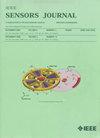Incipient Fault Identification of Bearings in Electric Drive System Under Varying Speeds Based on Adaptive Feature Mode Decomposition
IF 4.3
2区 综合性期刊
Q1 ENGINEERING, ELECTRICAL & ELECTRONIC
引用次数: 0
Abstract
Rolling bearings constitute a core component in the electric drive system of electric vehicles, and their health status is crucial for the safe operation of these vehicles. Therefore, effective condition monitoring and fault detection for bearings is of paramount importance. However, under variable operating conditions, the incipient weak fault signatures of bearings are prone to be masked by intense noise, significantly increasing the challenge of fault identification. To tackle this issue, an adaptive feature mode decomposition (AFMD) approach is introduced for diagnosing incipient weak fault in bearings under variable operating conditions. First, the instantaneous rotational frequency is extracted from the motor stator current signal. Subsequently, angular domain resampling is performed on the synchronously sampled vibration signal. Second, to overcome the lack of adaptability in determining the key input parameters of the FMD algorithm, which typically relies on repeated manual trials based on experience, this research proposes determining the number of decomposition modes through scale-space spectral segmentation. On this basis, the spectral Gini index (SGI) is adopted as the objective function, and the particle swarm optimization (PSO) is utilized to automatically ascertain the filter number and filter length. With the optimal decomposition parameter combination, the AFMD is employed to perform optimal mode decomposition on the obtained angular domain bearing signal, and the component exhibiting the highest SGI value is chosen as the sensitive mode. Finally, significant fault characteristic orders are extracted from the envelope order spectrum (EOS) of the sensitive component to accurately identify the fault type. The efficacy and superiority of the proposed methodology are confirmed through variable-speed simulated bearing signal, experimental data, and actual electric vehicle bearing diagnosis cases. The analysis demonstrates that the proposed approach can clearly and comprehensively capture weak fault information even under significant background noise interference, thereby enhancing the representation ability and diagnostic accuracy of early fault characteristics in bearings under variable-speed conditions.基于自适应特征模态分解的变速电传动系统轴承早期故障识别
滚动轴承是电动汽车电驱动系统的核心部件,其健康状况对电动汽车的安全运行至关重要。因此,对轴承进行有效的状态监测和故障检测至关重要。然而,在可变运行条件下,轴承早期的微弱故障特征容易被强烈的噪声掩盖,大大增加了故障识别的挑战。针对这一问题,提出了一种自适应特征模态分解(AFMD)方法,用于轴承变工况下的早期弱故障诊断。首先,从电机定子电流信号中提取瞬时旋转频率;随后,对同步采样的振动信号进行角域重采样。其次,针对FMD算法在确定关键输入参数时缺乏适应性,通常依赖于基于经验的重复人工试验,本研究提出通过尺度空间光谱分割确定分解模式个数。在此基础上,采用谱基尼指数(SGI)作为目标函数,利用粒子群优化算法(PSO)自动确定滤波器个数和滤波器长度。通过最优分解参数组合,利用AFMD对得到的角域方位信号进行最优模态分解,选取SGI值最高的分量作为敏感模态。最后,从敏感分量的包络阶谱(EOS)中提取重要的故障特征阶数,以准确识别故障类型。通过变速模拟轴承信号、实验数据和实际电动汽车轴承诊断案例,验证了该方法的有效性和优越性。分析表明,该方法在明显的背景噪声干扰下也能清晰、全面地捕获微弱故障信息,从而提高了变速工况下轴承早期故障特征的表征能力和诊断精度。
本文章由计算机程序翻译,如有差异,请以英文原文为准。
求助全文
约1分钟内获得全文
求助全文
来源期刊

IEEE Sensors Journal
工程技术-工程:电子与电气
CiteScore
7.70
自引率
14.00%
发文量
2058
审稿时长
5.2 months
期刊介绍:
The fields of interest of the IEEE Sensors Journal are the theory, design , fabrication, manufacturing and applications of devices for sensing and transducing physical, chemical and biological phenomena, with emphasis on the electronics and physics aspect of sensors and integrated sensors-actuators. IEEE Sensors Journal deals with the following:
-Sensor Phenomenology, Modelling, and Evaluation
-Sensor Materials, Processing, and Fabrication
-Chemical and Gas Sensors
-Microfluidics and Biosensors
-Optical Sensors
-Physical Sensors: Temperature, Mechanical, Magnetic, and others
-Acoustic and Ultrasonic Sensors
-Sensor Packaging
-Sensor Networks
-Sensor Applications
-Sensor Systems: Signals, Processing, and Interfaces
-Actuators and Sensor Power Systems
-Sensor Signal Processing for high precision and stability (amplification, filtering, linearization, modulation/demodulation) and under harsh conditions (EMC, radiation, humidity, temperature); energy consumption/harvesting
-Sensor Data Processing (soft computing with sensor data, e.g., pattern recognition, machine learning, evolutionary computation; sensor data fusion, processing of wave e.g., electromagnetic and acoustic; and non-wave, e.g., chemical, gravity, particle, thermal, radiative and non-radiative sensor data, detection, estimation and classification based on sensor data)
-Sensors in Industrial Practice
 求助内容:
求助内容: 应助结果提醒方式:
应助结果提醒方式:


